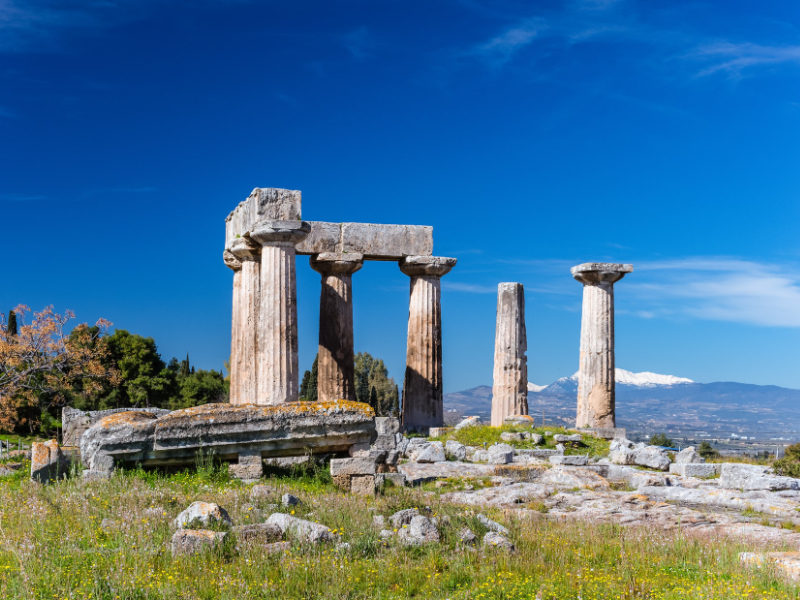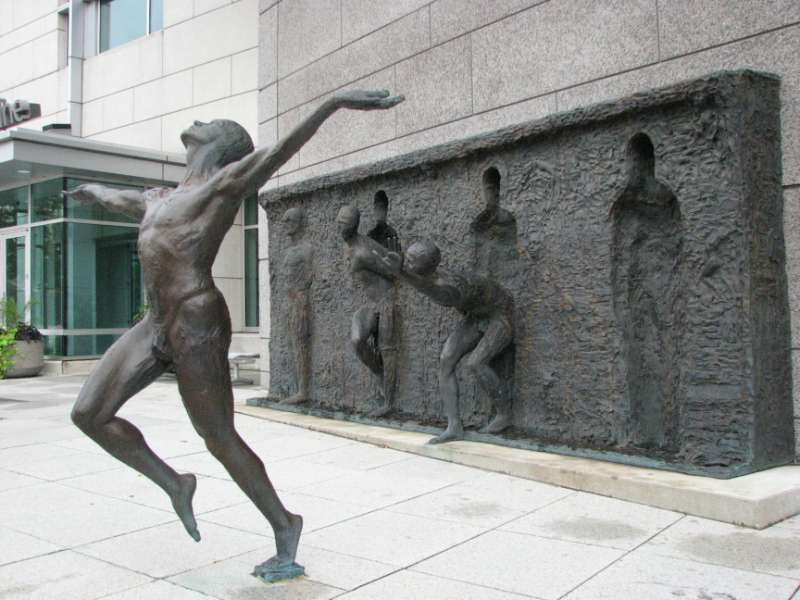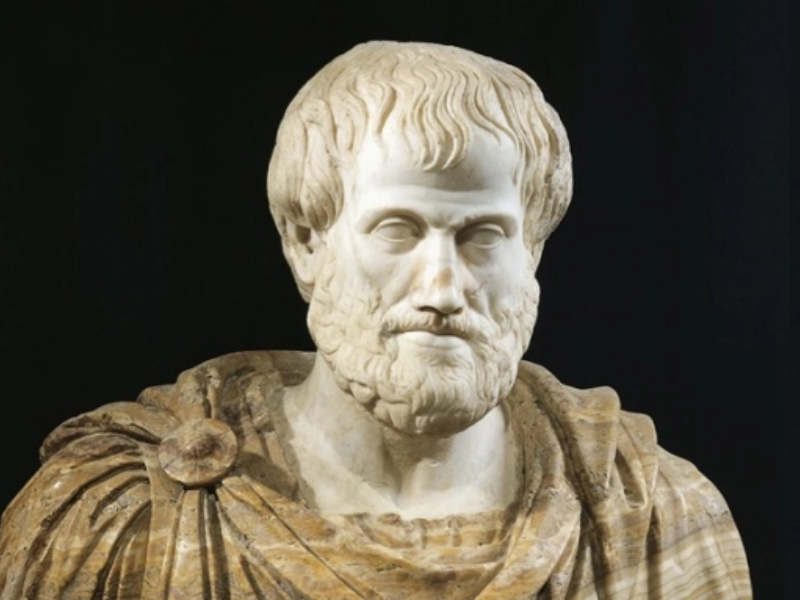Poetic Imagination
– The Creative Art of Understanding –

hope at least once in your life you’ve seen the Milky Way. The brushstroke of glimmering white light that cuts through the heavens is breathtaking. And to imagine, before all the light and carbon pollution, our ancestors simply had to look up to see this heavenly mural. Didn’t really matter where they were. Every night, there it was. Beautiful.
Our relationship with the stars is not only a great starting point for the history of knowledge. It’s largely what it means to be human. Children across the world and time have looked up to the stars and been swept away by their beauty and deep mystery. And some of these brave little cosmologists, desperate to know more about their home the cosmos, eventually began to speculate answers.
Sketching Understanding Onto the Darkness of Our Ignorance
One answer comes from the early Kiowa people of North America, who tell a wonderfully imaginative story about how a particular star cluster known now by its Greek name the Pleiades came to occupy the sky.
It goes something like this. A group of seven women snuck away one night to dance under the stars. But suddenly, while the women were workin’ that pelvic sorcery, the Bear People showed up and started to chase the women. So, the women ran like hell and climbed onto a large rock for safety.

But the Bear People too started to climb. Panicked, the women asked the rock for protection. And, because no one had honored it before, the rock agreed to help. It shot out of the dirt and knocked the Bear People to the ground.
The women were safe for now but quickly realized they were stranded on the rock. ‘Well shit,’ one of ’em said, ‘What’re we gonna do now?’ Desperate, they sang prayers to the stars for help. Happy to hear their praise, the stars took the seven women into the sky. In midwinter, you can still see them sitting above the Devil’s Tower in Wyoming, smiling down on the rock spirit with gratitude.
The early Kiowa people were animists, meaning they believed pretty much everything has awareness and feelings, including rocks, plants, and animals.
Animism prevailed from the cognitive revolution, some seventy thousand years ago, until about the time of the agricultural revolution, some thirteen thousand years ago. A few secluded tribes from around the world, however, remain animists to this day.
Adding Color to Your Sketches
With the rise of the agricultural revolution, our ancestors’ beliefs started to shift to polytheism — the view that a group of gods control the world. One of the leading theories about the switch suggests our ancestors invented gods in their own images to explain mysterious invisible forces like the weather, which they needed on their side if their crops were to be successful.
So, our ancestors began to build relationships with the gods — they began to offer the gods all kinds of plant, animal, and even human sacrifices in order to be rewarded healthy crops and harvests.

And as agriculture developed and cities expanded, our ancestors began to grow quite the fetish for inventing gods. They now had entire pantheons of gods to explain all kinds of phenomenon — gods of war, gods of water, of fertility, wisdom, music, death, love, and so on. Before long, there was a god or goddess for everything.
Our polytheist ancestors began to see the world as their own; as something given to them by the gods. And if they made the gods happy, the gods would reward them with plenty of food, water, and good fortune. But if they upset the gods, well, then the capricious gods would punish them with droughts, earthquakes, plagues, and other catastrophes.
Over time, as more kingdoms arose, each with its own pantheon of gods, the arena started to get overcrowded. And when you have so many gods in charge of so many things, odds are you’re gonna piss off at least some of ’em. People therefore started to pick favorites, worshipping only one god, even though they believed other gods exist — a belief known as henotheism, which seems to have first appeared in India during the Vedic period (c. 1500 — c. 600 bc).
You can also see traces of henotheism in the Bible. In the book of Jeramiah, for example, Yahweh gets upset at his people for worshipping Ishtar: “Don’t you see what they are doing in the…streets of Jerusalem? The children gather sticks, the fathers build the fire, and the mothers knead dough, to make cakes for the Queen of Heaven [Ishtar], and they pour libations to other gods, to vex Me.”(Jeremiah 7:17–18).
Anyway, Jeremiah and Ezekiel — two prophets from the Abrahamic religion — were among the first to push the idea that all gods except one are false. They even went so far as to argue that the one true god punishes idolatry. If you’re curious to see how Abraham’s god treats idolaters, just check out the golden calf incident in the book of Exodus. (Exodus: 32 et seq.)

Like Jeremiah and Ezekiel, many polytheists became so fond of their patron god that, over the generations, people began to believe that the god of their ancestors was the one true god. Thus, the seeds of monotheism were sown.
There were, however, some more direct routes to monotheism. One of the first known monotheistic religions, for example, began in ancient Egypt around 1350 bc when the Pharaoh declared Aten — one of the minor deities of the Egyptian pantheon — as the one and only supreme power of the universe. I don’t know what Pharaoh’s fascination was with this god, but homie made the worship of Aten a state institution and penalized all other worship.
Finally, alongside the development of monotheism, dualistic religions also emerged, kicking off the fight between good and evil in an adorable attempt to understand human morality. Dualistic religions generally assert that good and evil exist in a perpetual battle with one another. And that each of us, in one way or another, play a part in this war.
Zoroastrianism is one of the earliest and most influential dualistic religions. Zoroastrians believe that the world is a battleground for the fight between the good god and the bad god, and that it’s our job to help defeat the bad god. It eventually became the official religion of the Sassanid Persian Empire around AD 220. It largely inspired the Christian crusades and has fueled many jihads to help defeat evil.

And, in Gnosticism and Manichaeism, we find explicit distinctions between the material body and the immaterial soul. The good god, Gnostics and Manichaeans believe, created our spirits and the bad god created our bodies and all other material things. And we humans serve as the battleground between the good soul and the evil body.
Conclusion
Okay, so…our early ancestors were just a bunch of kids playing in the cosmic sandbox without a clue about much of anything. Their speculations of the world were…well, naïve and childlike. But, what do you expect?
The cosmos is vast. We had to start somewhere. We owe all our knowledge to these brave little cosmologists. It’s their wonderfully imaginative stories that mark our first brave steps into the darkness of our ignorance.
But imagination alone, of course, won’t get us any nearer to truth. We also need a way to reign-in our poetic imaginations. In the next Episode, then, we’ll explore how a small group of Greeks in the Ionian colonies finally figured out the trick.
More Articles
“Poetic Imagination”
I hope at least once in your life you’ve seen the Milky Way. The brushstroke of glimmering white light that cuts through the heavens is breathtaking. And to imagine, before all the light and carbon…
“Carving Knowledge from Our Imaginations”
Every civilization throughout history has created a dogmatic school whose main task is to pass on the doctrine of its founder intact to each generation. In the rare…
“Failures of Ultimate Explanation”
The earliest Greek philosophers didn’t really ask ‘what is?’ questions. Rather than quibble over the meaning of words, they tried to solve specific problems by creating bold explanatory theories…
“Plato’s Moral Tyranny”
Only you, the individual, can decide whether a behavior, norm, or institution is right or wrong. It is your burden and yours alone. You can’t shift it to god, nature, history, or even to society, because whatever…






